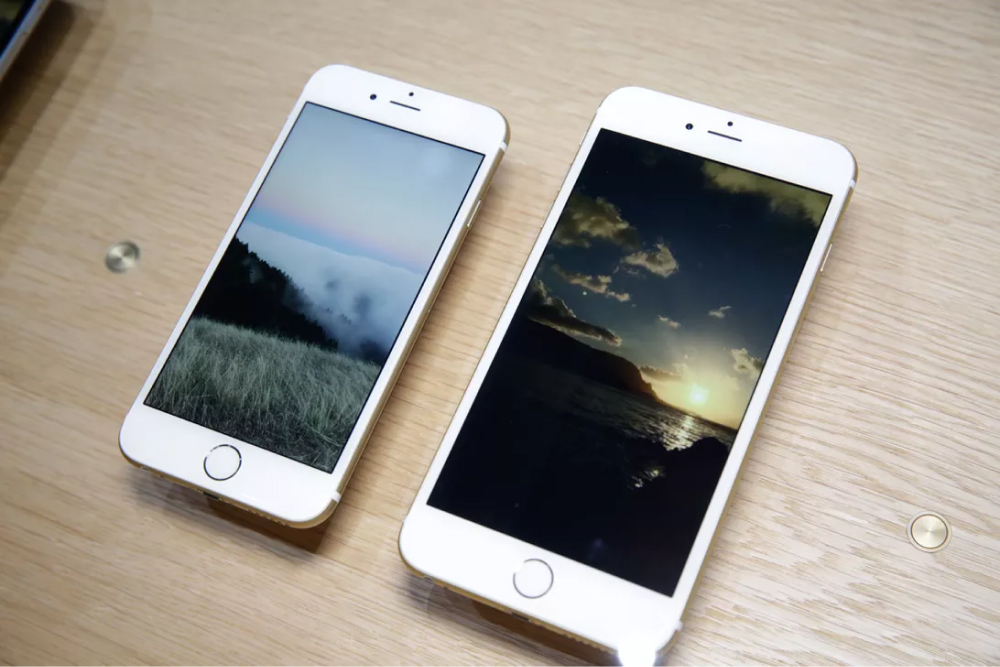Impatience is The Pitfall of Every Ambitious Entrepreneur!
Within such an ever-evolving entrepreneurship world, in order to run a successful business, individuals sometimes have to hustle and be somewhat of a hard-charger. Impatience, unsurprisingly, is a common byproduct of the entrepreneurial mindset.
In many ways, being impatient is good. You are unwilling to wait for the world to change; instead, you go out and change it. Nevertheless, such impatience has a cost – and most of the time, people can’t bear it!
Is your chronic impatience going to kill your startup’s success? Let’s read on to figure out your own answer!
Impatient “Innovators” Who Failed
No matter how essential it is, the virtue of patience is – more than often – taken for granted. And especially when it comes to pursuing potentially innovative ideas, being told to “have patience” can be a major buzzkill. In fact, far too many businesses ignore its importance – they get sick of waiting, and either rush a bad innovation to market or they give up on it altogether.
This impatience is likely to cause large enterprises to miss out on even bigger profits – and for smaller companies, especially ones in the early phase of development, they don’t just miss out on profits but also “wither on the vine”.
Let’s go through a couple of striking cases to grasp a clear view of such things!
Google Wallet
There are a large number of people who believe that Apple was the first to come up with the brilliant idea of paying for physical products with your phone – instead of your wallet. But they weren’t! Actually, the first one is Google who made an initial attempt at bringing out a similar product, Google Wallet, several years ago. However, they just didn’t have enough patience with it!

The company did develop a stunning product, but rather than holding out, carefully negotiating and closing deals with phone and card companies, they released the product in a rush. Since these companies were not seeing a benefit, there was a backlash: Card companies demanded large fees for digitizing credit cards while phone companies blocked the service because they viewed it as a competitor to their own mobile payment options.
And to make matters worse, Google Wallet required a specific technology to work, which phone manufacturers were sluggish to install.
As a result, it is estimated that Google lost around $300 million on this catastrophe. In retrospect, it all could have been avoided if they had patiently negotiated and worked with other industries to release such an innovative idea in unison.
iPhone 6 Phone Screen
There is no denying that Apple has accomplished great success through its disruptive ideas and products. Historically, many of these amazing products have been developed and manufactured on punishing timelines. Apple had this same goal for their iPhone 6 phone screens.

To take a deeper look, Apple partnered with GT Advanced Technologies, a company that had developed ovens to cook sapphire crystals into a phone screen to prevent cracking and scratching. The acute problems were that GT Advanced Technologies had never worked on such a large scale- and more importantly, they hadn’t fully mastered the technology.
But instead of keeping patience and giving GT Advanced Technologies the time it needed to thoroughly develop the technology and scale up, Apple rushed them. The result? The sapphire blocks, which had to be cooked in a sealed furnace for a month, came out broken, and they were never able to develop a method for slicing the blocks into a glass.
In the end, Apple wasted staggeringly $1 billion on building the sapphire factory, and GT Advanced Technologies eventually filed for bankruptcy. The great potential that this innovative idea had for the future of Apple phones was lost – due to the fact that Apple didn’t allow it the time it needed to succeed.
Nike FuelBand

When it comes to the brand of Nike, people usually relate to innovation. That’s why it was so shocking that their FuelBand did so poorly. The market for wearable fitness tracker was estimated to sit at approximately $350 million by the end of 2013, but at that point, Nike FuelBand was only making up about 10% of that. By 2014, Nike started laying off the development specialists and engineers behind the FuelBand.
After that, they decided to continue to sell the device, but no longer invest in its development – this is where Nike went wrong. In lieu of proceeding to perfect the device and pushing the innovation forward, they got impatient. For a long time period, they were stuck with a wearable fitness tracker that had no unique features to set itself apart from the competition and rarely had any desirability factor with consumers.
Zirtual
In around 2014 and 2015, this Columbus-based startup was beginning to generate a lot of buzzes. It was a business that promised to further change and improve the concept of virtual assistants as well as save corporate clients a significant amount of money. And again, the problem did arise, coming down to impatience.

Rather than focusing on invest time in establishing a strong board of directors and seeking an adept CFO, the CEO and founder hired hundreds of employees and launched. Such a weak personnel infrastructure scared off investors, leaving Zirtual with no investment money to pay employees. Overnight, approximately 400 people were fired and the assets were then acquired by Startups.co in an all-stock transaction.
Microsoft Windows 10 Mobile
It goes without saying that Microsoft has set the scene for the future of technology, decade after decade. They harbored an ambition to do the same with the launch of Windows 10 Mobile – a brand new operating system. Unfortunately, Microsoft set themselves up for failure by “allowing internal impatience to created external impatience”. To be more concrete, Microsoft made a whole lot of lofty promises and release date announcements that they just could not keep. This then angered and frustrated users, who started to put more and more pressure on the company to release. And by the time the product was finally released, no one cared.

Should Microsoft have been more patient, they would have been able to publicize a product – that all users could have gained access to, that had an easily locatable install application, that was easily installable, and that would have well addressed the problems of earlier versions. Unfortunately, their product did none of these things, and what could have been an amazingly innovative platform turned into a product that is hard to be accessed to by several keen users. And as for the ones who did have access to it, it still didn’t live up to their expectations.
All things considered, even the market leaders or the giant businesses may probably hit stumbling blocks due to being impatient. Actually, no matter how large or successful a company is, patience can be a hard habit to learn. In the majority of cases, the difference between a good idea and a breakthrough one is not just the idea itself—but also the timing. As a business owner, you may come up with a great idea, but if you don’t show enough patience to give that idea the time it needs to evolve, you likely won’t create the killer innovation you’re hoping for.
If you fail to plan, you are planning to fail!
– Benjamin Franklin
Impatience: The Pitfall of Every Ambitious Person
Once you’ve gone over some true cases, it’s high time to delve deeper into the problems of impatience.
“Ready, Fire, Aim” Syndrome
Should you have been in the entrepreneurship scenes for a while, you must sometimes hear about “Ready, Fire, Aim” approach. In fact, this execution “syndrome” is all too common amongst business owners, especially in early startup stages. Whereas sometimes it leads to rapid iteration and growth, more often than not it results in problems.
Actually, premature execution will doom even a good ready-aim-fire plan. And this most often happens due to impatience, which can result from overreaction to some market surprise, a last-minute input, or a squeeze on cash.
Impatience Is Self-Sabotage
Sometimes, it’s fair to say that impatience is self-sabotage. Why? Usually, when you jump to a hasty conclusion, you will end up creating an artificial timeline in your mind. When people or processes fail to align with that timeline, the mind can run wild. You begin to question the motives and intentions of the people on the other side of the equation and put forth so-called “ultimatums” that may or may not be considered reasonable.
And unfortunately, this usually leads to two saddening outcomes.
First of all, you get to be exhausted and desperate due to impatience. Pushing a partner too aggressively or issuing unreasonable “ultimatums” is extremely off-putting. Such actions can come across as a major red flag to external parties and more often than not, it kills the deal. Suffering from impatience also means suffering from angst, anxiety and the kind of aggressive rush to action that inevitably results in unnecessary mistakes.
Secondly, being in the impatient mood will screw up your decisions, clouding your judgment, detracting from your credibility, and seriously damaging relationships. Don’t get fooled into thinking that your anxiety level should be the factor that helps you arrive at the final decision, especially when it comes to decisions of risk-taking. The feelings controlled by “impatience” may be very unreliable: The more emotional you feel, the less logical your thoughts will be.
Killing Your “Bad Impatience” Before It Kills Your Business
As already discussed, impatience leaves a negative effect not only on your mood, but also your ability to wisely make decisions. The impulsivity – resulted from being impatient – can lead to faulty launches, lack of market research, and not truly understanding your audience.
The wisest entrepreneurs are the ones who know that patience is precisely what they must cultivate in order to establish the ongoing success that they do wish. Should you wish to be one amongst them, let’s take a look over some practices to curb the bad side of your impatience as well as leverage patience to help you get everything you want.
#1. Take All Perspectives into Consideration
Being impatient will cause entrepreneurs like you to miss essential signs from the people around you. Since individuals all depend on other people to enhance their businesses―partners, vendors, customers, and employees, practicing the art of patience can pay you huge dividends.
Let’s ask yourself some simple questions! How often do you deliberately pause to consider the perspective of the person sitting across from you? When was the last time you used patience as an opportunity to deepen your empathy and therefore position yourself to maximize the outcome of interpersonal interaction?
Whether it’s hammering out a deal with a new customer or negotiating plans for the next working week, patiently considering all perspectives before acting is a surefire way to position your “endgame” more strategically and effectively.

#2. Don’t Measure Yourself Against Someone Else’s Metrics
In fact, it’s simply so easy to look at others in your industry or your niche and have some thoughts like “wow, they have the perfect demo videos”, or “Look at the fancy design of their website. Maybe I need to have that standard too before I release anything else!” But rather than just being immersed in these trains of thoughts, let’s think about: How long have they been at this? Is it only them producing these pieces of content, or have they grown to the point where they have a full-stack team working for them?
No matter how simple these questions seem to be, the answers will make it clear that you cannot possibly measure yourself based on their yardstick. Instead, you’d better off taking a step back and invest hugely on what you are capable of accomplishing at this point in your journey. Anyway, let’s get honest about your leadership and your business limits. The hidden key is to be patient with your growth! Let’s stay true to your brand, and be 200% sure that you are offering your audience and prospective customers as much value as you possibly have to give.
After all, such a focused value-added approach along with practicing self-patience, will challenge you and push you towards the next level in your business.
#3. Reflect on Your Past Experiences
The only downside with being patient – or the major attraction of being impatient – is that you lose a few extra minutes while you think. Yet, if you think much deeper and further, you can all easily identify a situation when you were impatient and how it backfired, causing yourself to lose far more than just a few minutes.
What’s the real price of impatience? More than just the time, it could be money, respect, credibility, relationship – all of the above or much worse. Actually, being impatient may cost you far more time and money to unwind your hurried actions than it would have cost to just sit back, let things develop, fill the gaps with the right questions and obtain a well-rounded perspective.
Thus, the lesson is: let’s self-reflect often on your painful experiences to remind yourself that a few lost minutes now are well worth any alternative scenario that being impatient might bring about!
#4. Set Strategic Goals and Deadlines
Practicing patience never means that you get to be lazy and nonchalant towards your goals and deadlines.
To “upgrade” your business game, you still have to hustle hard every single day to be more productive and more efficient with crafting content, delivering products or services, and satisfying the needs of your customers.
To take a simple example, when starting out with a blog, it is essential to practice patience when it comes to your launch date. If you allow yourself or your team with sufficient time to build up your blog content, you are not going to be overwhelmed by the schedule you’ve set out to keep. Or when you’ve already established an archive of articles, it is much easier to provide your audience with consistent content and maintain their engagement.
Another critical time to leverage your patience is during new product launches. Of course, there are several approaches you can take but a great one may be to go through a testing ground with a few chosen customers before the big launch. Not only does this enable you to build confidence in your product but also empowers you to figure out where adjustments need to be made.
After all, “patience is not the ability to wait, but how you act while you’re waiting.”
The Bottom Lines
As one player of entrepreneurship game, you’re living in a world that values quick thinking and dynamic action. Whereas this is not a bad thing in and of itself, problems will arise if you allow these traits to manifest in the form of impatience.
Speaking as a Millennial, patience is a virtue – that unfortunately, our generation simply doesn’t possess. But let’s practice such a virtue from now on, to experience the magic of patience and how it can do wonders for your business.









